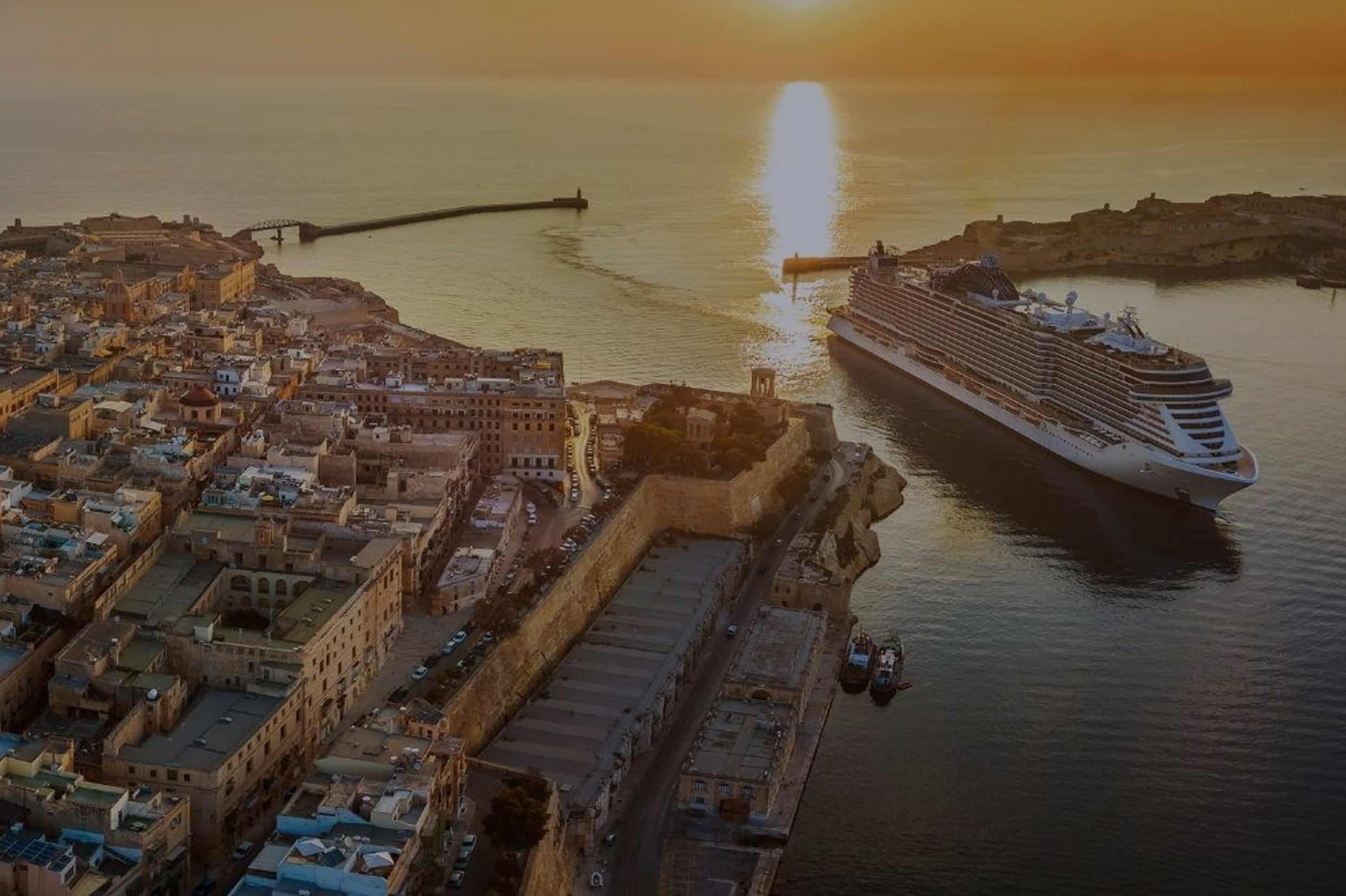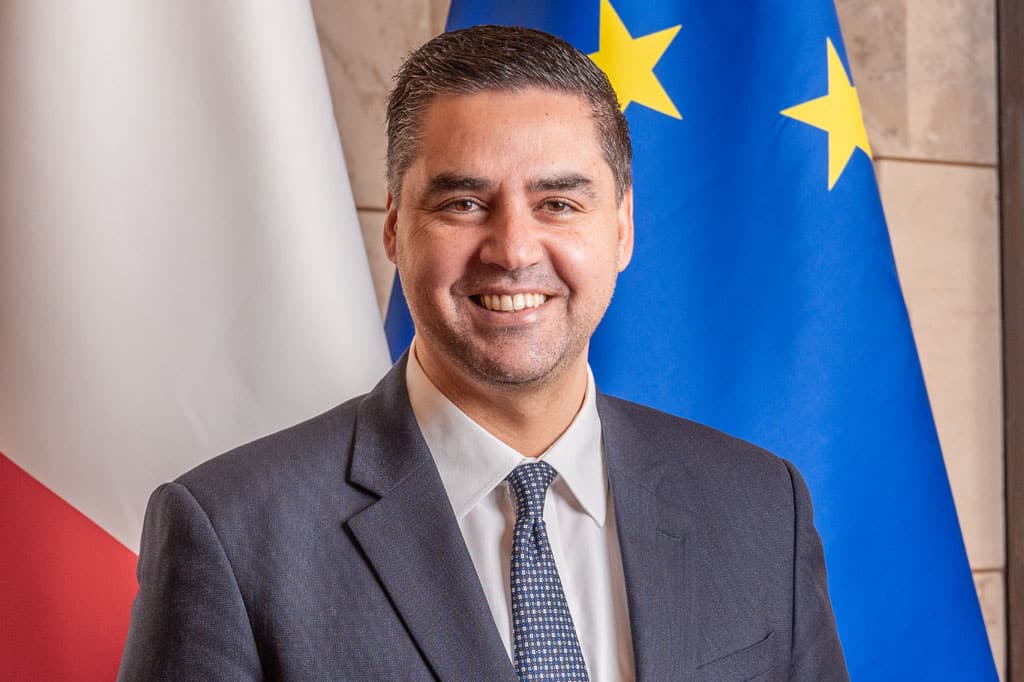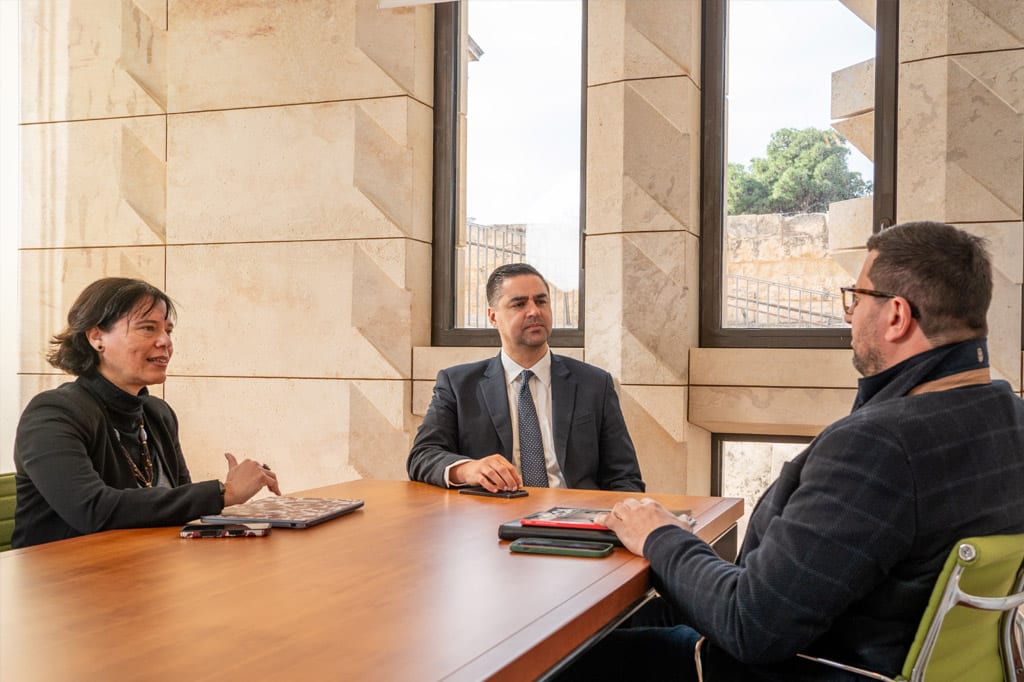
Beyond the Numbers: Shaping the Future of Malta’s Tourism
April 11, 2025

Malta MICHELIN Guide 2025 List Revealed
February 19, 2025
Past Meets Pastry: The Evolution of Easter’s Sweetest Traditions
April 11, 2025Malta’s tourism is at a crossroads, set to move beyond record growth towards sustainability. In this exclusive interview with HORECA Malta, Deputy Prime Minister & Minister for Tourism & Foreign Affairs Dr Ian Borg outlines government plans to balance investment and long-term success.
Malta’s tourism industry has seen record-breaking growth, but concerns over sustainability, quality, and workforce challenges are pushing the sector towards a crucial turning point. We sat down with Deputy Prime Minister and Minister for Foreign Affairs and Tourism Dr Ian Borg to find out more about how he intends to face the challenges set out by this new portfolio.
Q: Being a few months into the new ministry, which areas have been identified as priorities needing urgent attention?
A : Our focus includes a thorough review of classification and application processes to ensure regulations remain up to date, loopholes are addressed, and investments are directed where they are most needed. We are accelerating the transition towards quality tourism, shifting away from unrestrained growth in favour of more attractive and lucrative tourism flows.
Q: Foreign Affairs is also part of your portfolio. Will you be leveraging this to support the tourism sector?
A: Superficially, the Foreign Affairs portfolio bears very little relationship with the Tourism one. However, there are strong synergies between both functions, and one can be used to leverage the other for mutual benefits.
To give one example, earlier this year in Doha, we met with Qatar’s Prime Minister Al-Thani and other key officials to finalise an agreement for the launch of four new weekly Malta-Qatar flights by Qatar Airways starting this summer.

Dr Ian Borg
Q: 2024 saw off-peak tourism increase by 26%. To what
do you attribute this, and are there further plans to
leverage these figures?
A: Increasing off-peak tourism is a core pillar of our strategy. It helps balance seasonal spread, allowing for more sustainable resource use, and supporting year- round airline routes, rather than seasonal operations. This approach encourages a higher turnover of visitors with a lower overnight footprint, while ensuring that growing demand leads to higher average rates. Off-peak expansion will also help attract visitors from key southern hemisphere markets such as Australia and Latin America.
Q: Can you elaborate on plans to reposition Malta’s tourism strategy towards the solo female travel, niche, and experiential travel segments as announced in this year’s conference?
A: Our tourism strategy is already evolving to support these segments. The MTA identifies new Maltese products, services, or niches, matches them with market trends, and stimulates demand through targeted soft marketing. Elements such as Malta’s accessibility, safety, hospitality and versatility ensure that this shift is continuous and ongoing.
Q: The MHRA has raised concerns about an over- saturation of hotels, with more permits being granted. What strategy is the ministry planning to follow in this regard?
A: Investment in tourism needs to be seen within the broader Maltese economic development model. However, we recognise that this model cannot be extended indefinitely. Increasingly, we are factoring in quality of life and green spaces. We encourage investors to go beyond accommodation offerings and remain committed to supporting private investment through adequate infrastructure development
Q: The hospitality industry has increasingly relied on foreign workers. What is your ministry’s stance on balancing foreign and local workforce recruitment?
A: This trend is common across developed countries due to changing work ethics, ageing populations, and low birth rates. We support the new policy being discussed, which aims not to restrict foreign workers but to be selective about skills and quality. At the same time, we continue encouraging Maltese participation in tourism careers, as the Maltese hospitality experience remains a key attraction.
Q: What policies are being introduced to ensure fair wages and working conditions?
A: We are implementing several initiatives to strengthen the tourism workforce and ensure fair wages and working conditions. This includes the introduction of a Skills Card to address the issue of low-paid, unskilled, and highly mobile workers who negatively impact the industry. Additionally, we are expanding student intake and course offerings at the Institute of Tourism Studies (ITS) to better align with industry demands. We are also reinforcing the MTA’s human resources dimension by focusing on continuous training and upskilling while actively promoting tourism careers in schools to attract and develop local talent.
A: Increasing off-peak tourism is a core pillar of our strategy. It helps balance seasonal spread, allowing for more sustainable resource use, and supporting year- round airline routes, rather than seasonal operations. This approach encourages a higher turnover of visitors with a lower overnight footprint, while ensuring that growing demand leads to higher average rates. Off-peak expansion will also help attract visitors from key southern hemisphere markets such as Australia and Latin America.
Q: Can you elaborate on plans to reposition Malta’s tourism strategy towards the solo female travel, niche, and experiential travel segments as announced in this year’s conference?
A: Our tourism strategy is already evolving to support these segments. The MTA identifies new Maltese products, services, or niches, matches them with market trends, and stimulates demand through targeted soft marketing. Elements such as Malta’s accessibility, safety, hospitality and versatility ensure that this shift is continuous and ongoing.
Q: The MHRA has raised concerns about an over- saturation of hotels, with more permits being granted. What strategy is the ministry planning to follow in this regard?
A: Investment in tourism needs to be seen within the broader Maltese economic development model. However, we recognise that this model cannot be extended indefinitely. Increasingly, we are factoring in quality of life and green spaces. We encourage investors to go beyond accommodation offerings and remain committed to supporting private investment through adequate infrastructure development
Q: The hospitality industry has increasingly relied on foreign workers. What is your ministry’s stance on balancing foreign and local workforce recruitment?
A: This trend is common across developed countries due to changing work ethics, ageing populations, and low birth rates. We support the new policy being discussed, which aims not to restrict foreign workers but to be selective about skills and quality. At the same time, we continue encouraging Maltese participation in tourism careers, as the Maltese hospitality experience remains a key attraction.
Q: What policies are being introduced to ensure fair wages and working conditions?
A: We are implementing several initiatives to strengthen the tourism workforce and ensure fair wages and working conditions. This includes the introduction of a Skills Card to address the issue of low-paid, unskilled, and highly mobile workers who negatively impact the industry. Additionally, we are expanding student intake and course offerings at the Institute of Tourism Studies (ITS) to better align with industry demands. We are also reinforcing the MTA’s human resources dimension by focusing on continuous training and upskilling while actively promoting tourism careers in schools to attract and develop local talent.

Dr Borg with HORECA Editor Ramona Depares (left) and HORECA Publisher Ryan Galea (right).
Q: The International Monetary Fund (IMF) recommended
that Malta improve its tourism management strategies.
How is the ministry responding?
A: We have a strong rapport with the IMF and take their recommendations seriously. Over the years, we have explained how our post-pandemic recovery, expanding market sources, and growing cross-seasonal appeal fit into a wider economic framework. The IMF links tourism industry challenges with national issues such as labour markets, construction, energy, and transport. Addressing these requires a broad national debate, not just a sectoral approach.
Q: Are there plans to introduce new regulatory frameworks or policy shifts in response to the IMF’s findings?
A: Yes, we are conducting a legislative review within the Malta Travel and Tourism Services Act to ensure it remains relevant and effective. This includes modernising regulations to reflect current industry realities, closing loopholes that enable undesirable tourism developments, and reassessing older schemes and measures to ensure they align with Malta’s long-term vision for a sustainable and high-quality tourism sector
Click here to see Horeca Issue 19 online
A: We have a strong rapport with the IMF and take their recommendations seriously. Over the years, we have explained how our post-pandemic recovery, expanding market sources, and growing cross-seasonal appeal fit into a wider economic framework. The IMF links tourism industry challenges with national issues such as labour markets, construction, energy, and transport. Addressing these requires a broad national debate, not just a sectoral approach.
Q: Are there plans to introduce new regulatory frameworks or policy shifts in response to the IMF’s findings?
A: Yes, we are conducting a legislative review within the Malta Travel and Tourism Services Act to ensure it remains relevant and effective. This includes modernising regulations to reflect current industry realities, closing loopholes that enable undesirable tourism developments, and reassessing older schemes and measures to ensure they align with Malta’s long-term vision for a sustainable and high-quality tourism sector
Click here to see Horeca Issue 19 online



